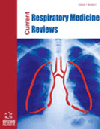
Full text loading...
Cytomegalovirus (CMV) is a ubiquitous pathogen that causes asymptomatic infections in the healthy immunocompetent host but is responsible for severe disease in immunocompromised individuals, graft failure, and congenital disabilities. Recent research implicates CMV as a crucial determinant of immunosenescence (detrimental age-related alterations responsible for the decline of immune responsiveness) and, more generally, a marker of life expectancy. CMV serostatus has been linked to an increased risk of cardiovascular, respiratory, oncological, and non-specific mortality in a number of intriguing, if not entirely clear, studies. Through a deep and extensive selection of the most updated and relevant literature on the matter, we summarized the most significant evidence concerning the role of CMV in immunosenescence, as well as all-cause and disease-related mortality. As is widely known, viral infections play a substantial role in the development and progression of respiratory disorders and are a well-established trigger for their exacerbations. Consistent with current observations correlating CMV seropositivity to mortality by chronic pulmonary disease, in the second part of the review, we focused on CMV involvement in obstructive lung disorders. In light of available evidence, CMV serostatus could represent a useful biomarker for risk stratification or even an underestimated target in the pathogenesis of several diseases. Considering the somewhat conflicting results and the potential clinical implications for a direct role of CMV in multiple chronic diseases, including obstructive lung diseases, we hope the present work encourages further investigation on the topic.

Article metrics loading...

Full text loading...
References


Data & Media loading...

